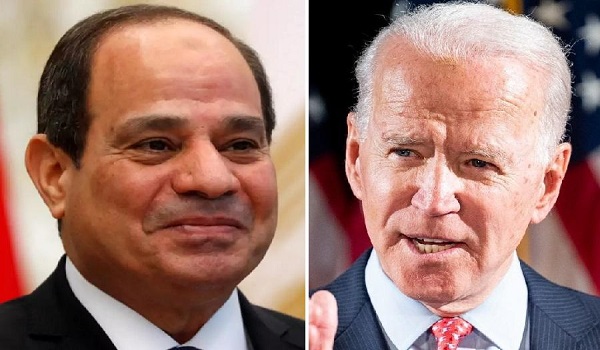The Egyptian authorities have started pursuing the families of Egyptian opponents who live in the United States, in order to intimidate them and force them to remain silent.
The Washington Post’s Cairo Bureau Chief Sudarsan Raghavan, in a report published by the Washington Post, said that the Egyptian regime was trying to silence its critics in the United States by imprisoning their relatives. Examples include Reem Desouky from Pennsylvania who was unjustly imprisoned in Egypt, and former political prisoner Mohamed Soltan, an activist from North Virginia who helped get her released in May.
Although Reem and Mohammed are now living freely in the US, the Egyptian authorities continue to terrorise their relatives in Egypt to force them to remain silent, according to the Washington Post.
Desouky’s brother was imprisoned without charge to ensure that she will not speak about the torture that she suffered for 10 months in an Egyptian prison or criticise the Egyptian government. Reem said of her brother’s imprisonment in Cairo: “They imprisoned him to prevent me from talking about what happened to me.”
Five of Soltan’s relatives were imprisoned in an arbitrary manner, after security forces raided their homes and arrested them from there, at midnight, last month. This move came after Mohammed filed a lawsuit in the United States against former Prime Minister Hazem el-Biblawi, who works for the International Monetary Fund (IMF) in Washington. Soltan accuses the former prime minister of being responsible for torturing him while in prison. “The authorities are undoubtedly holding five of my cousins who have nothing to do with politics with my father as hostages to silence me,” Soltan said. Soltan indicated that the Egyptian authorities told his family that in exchange for releasing them, he should withdraw the lawsuit.
Human rights activists said that the relatives of a number of opponents, human rights workers, democracy advocates, and journalists living abroad were arrested in Egypt, their homes were raided, and the security services prevented families from travelling abroad or took them to the headquarters of the security agencies to interrogate and imprison them. “The goal is to spread fear among Egyptian activists in exile or who have chosen exile,” said Mohamed Lotfy, executive director of the Egyptian Commission for Rights and Freedoms, “The government says we are watching you and we may not be able to reach you but we can reach your relatives, and this is an effective way [of silencing people].”
Human rights activists estimate that the government of Abdel Fattah al-Sisi started targeting opposition families since the beginning of 2016. But recently the regime has expanded targeting to include blackmailing the activists who live in the United States, which is a new phenomenon and reflects the deep dictatorship in Egypt, according to Lotfy.
President Donald Trump’s administration did not say anything about human rights violations in Egypt even when it tried to pressure the Egyptian government to release its American detainees. Critics say Washington’s silence has prompted al-Sisi’s regime to believe that it is possible to expand repression without facing serious repercussions.
The Washington Post quoted a State Department official as saying that reports of harassment of relatives of US citizens are cause for concern and that the United States is communicating with the Egyptian government in this regard. “American citizens who return to Egypt must abide by the laws of Egyptians, but these laws are harsh,” the official said. But the policy of intimidating opponents through imprisoning their relatives is not always successful. Soltan says he will not abandon the lawsuit: “The regime is a hammer that treats everything as a nail and I am not a nail” and “I refuse to be silent.” As for Reem, an Egyptian security official warned her when she and her son Mustafa were preparing to board the plane to Washington: “He told me to be silent.”
Human rights defenders say that the American administration can put pressure on the Egyptian regime to improve human rights conditions.
Reem says that today she suffers from anxiety, loss of desire to sleep, and fears that her brother will be infected with coronavirus in the notorious Tora Prison. Reem is still afraid of criticising the Egyptian regime, and she refused to answer if she was subjected to torture or other violations in prison. Her family in Egypt appealed to her to stay out of the spotlight. Reem has not posted anything on Facebook or any of the social media platforms about her brother or anything critical of the Egyptian government. “My family is afraid,” she said.





Recent Comments